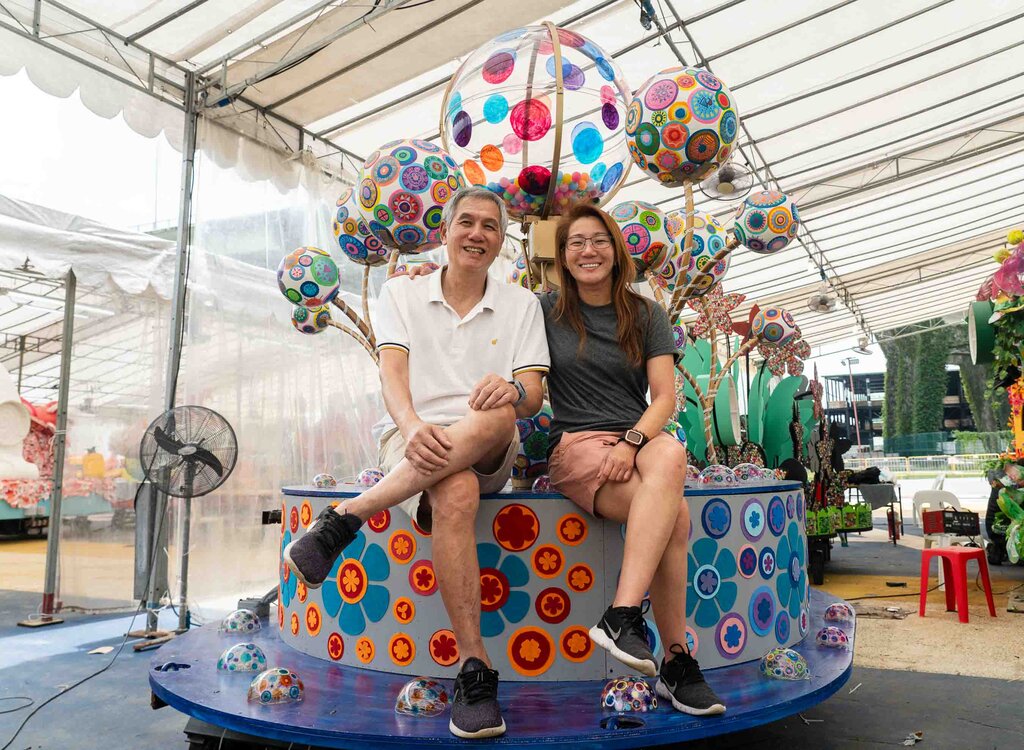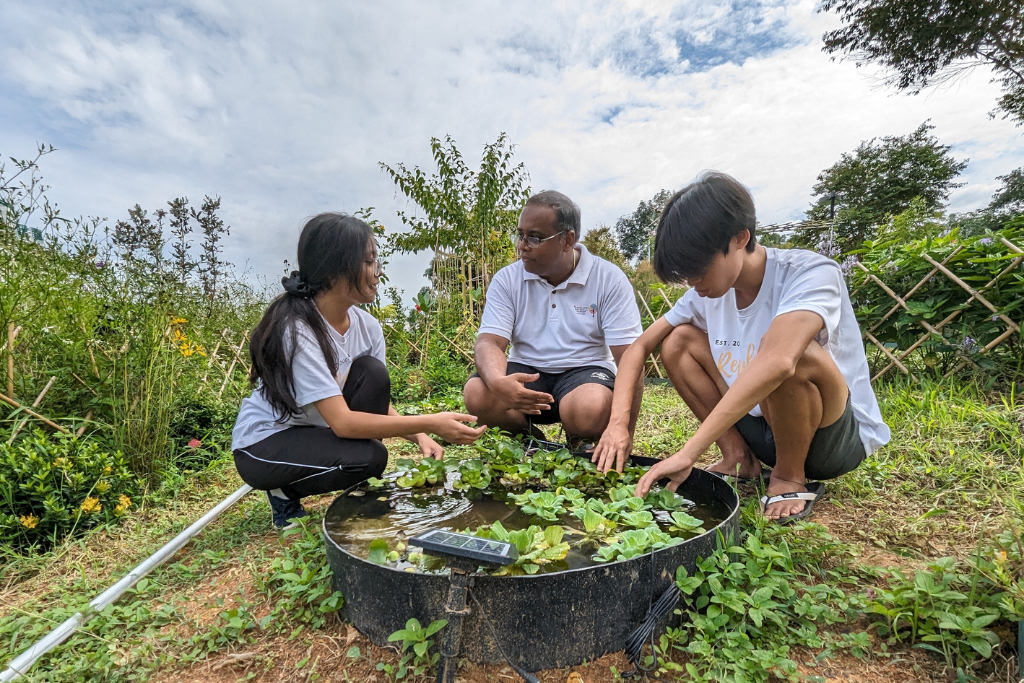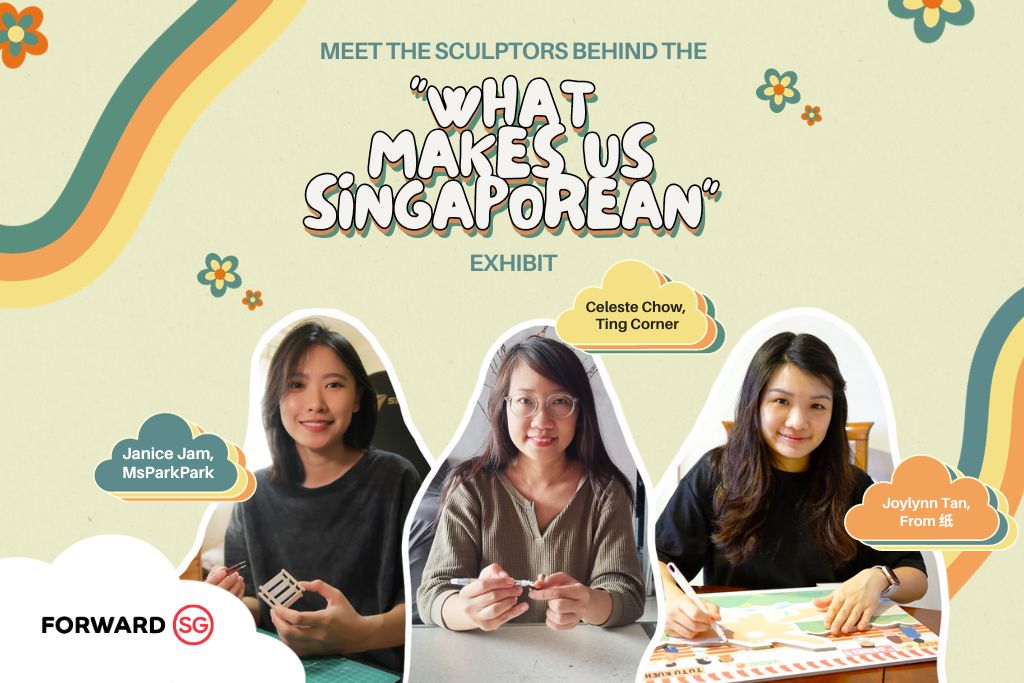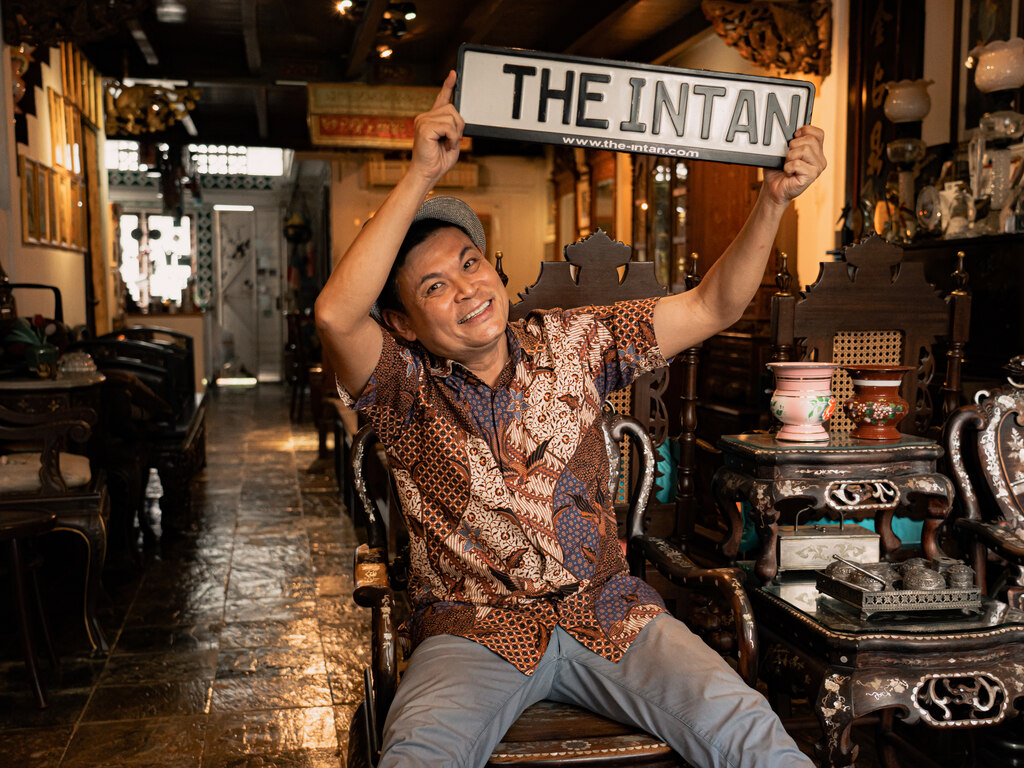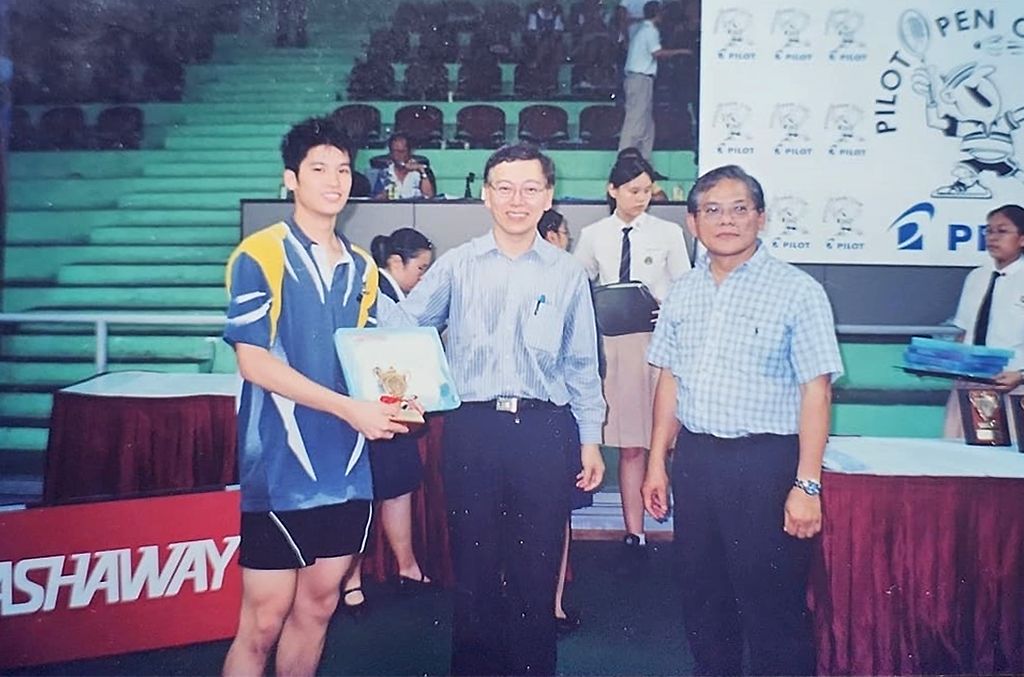Fostering Religious Harmony with Khidir Ibrahim
As someone who builds rapport with religious organisations, educates the public about Islam, and raises awareness for Singapore’s deaf community, 28-year-old Khidir Ibrahim does it all. We speak to Khidir to discuss his part in cultivating religious harmony.
- 21 Jul 2022
Connecting communities
As a Mosque Religious Officer (Community Outreach) at Al-Islah Mosque Punggol and Inter-Racial and Religious Confidence Circle (IRCC) member, Khidir Ibrahim has a lot on his plate. He’s in charge of building religious rapport with the communities of Punggol West and creating programmes, interfaith dialogues, and community events. Within the Mosque, he also manages volunteers, cares for their welfare, and is involved in conducting prayer sessions and classes.Khidir joined the IRCC in 2019 with the encouragement of his mentor Ustaz Khairul Anwar Bin Mohamed Aznan, who was initially Khidir’s supervisor and the former Head of Department, Dakwah & Community Development at Al-Islah Mosque. Khidir describes his time with the IRCC as a “fruitful experience” where he learnt to “respect the religions present in Singapore and understand the dynamics between them.” He also added that while “[everyone at IRCC] has different ideas and backgrounds, they have a common goal” to unite people regardless of race or religion.
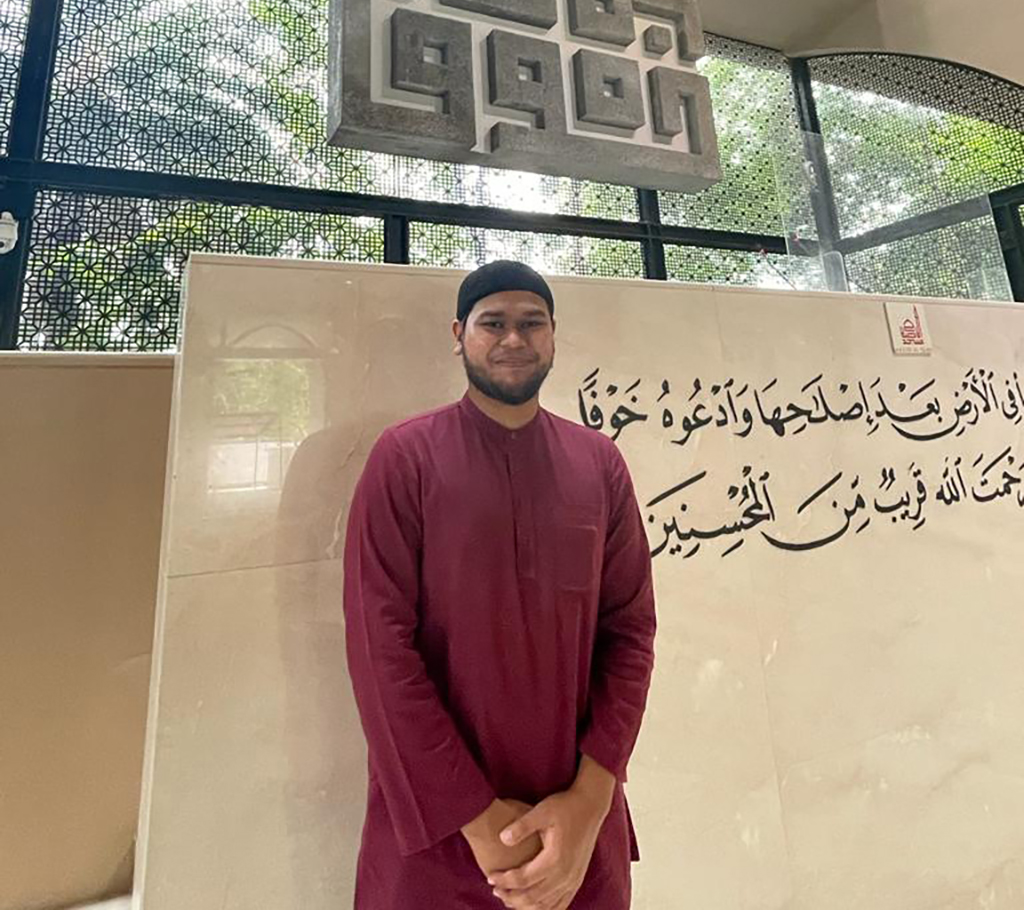
Portrait of Khidir at Al-Islah Mosque.
You may also know Khidir from his involvement with the ‘Blessings in Harmony’ project. It was founded in 2017 by Punggol West IRCC members, Clara Butt of the Dhammakaya Centre Singapore and Carl Danker of the Church of the Transfiguration. The project is currently spearheaded by the Al-Islah Mosque and has been organising food drives for rental blocks in Punggol and blood donation drives.
“It’s a good opportunity for people from different backgrounds to provide physical and financial support,” Khidir explained. The project also fosters “a state of togetherness” and new connections, making it particularly meaningful for those involved. “This creates a sense of humanity and a culture of being kind to others,” Khidir continued.
While some older staff members viewed him as new and less experienced when he first took on ‘Blessings in Harmony’, Khidir didn’t take those views to heart. “It’s my responsibility to prove them wrong and make the event better,” he said with a grin on his face. The event attendees were pleased with the experience, and for Khidir, it proved to be a learning experience about working with people of different ages.
“It’s a good opportunity for people from different backgrounds to provide physical and financial support,” Khidir explained. The project also fosters “a state of togetherness” and new connections, making it particularly meaningful for those involved. “This creates a sense of humanity and a culture of being kind to others,” Khidir continued.
While some older staff members viewed him as new and less experienced when he first took on ‘Blessings in Harmony’, Khidir didn’t take those views to heart. “It’s my responsibility to prove them wrong and make the event better,” he said with a grin on his face. The event attendees were pleased with the experience, and for Khidir, it proved to be a learning experience about working with people of different ages.
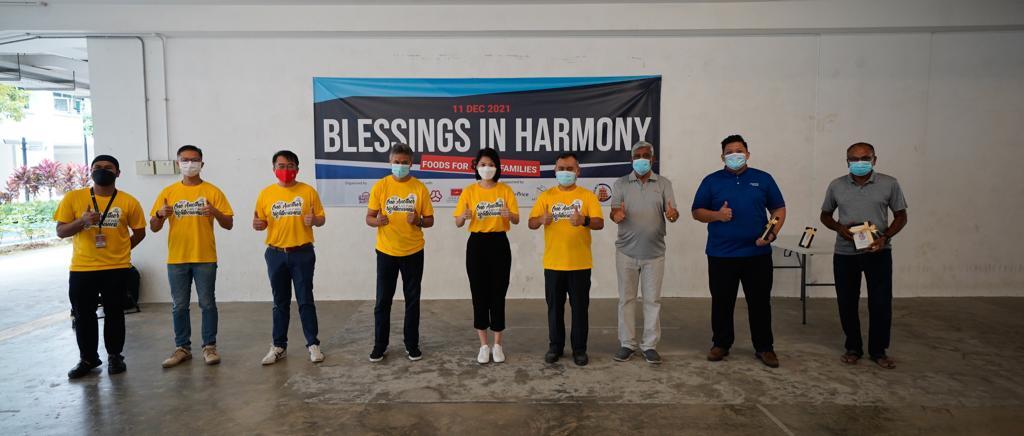
Khidir with other participants of the ‘Blessings in Harmony’ event in December 2021.
Advocating for the deaf Muslim community
In 2019, Khidir began working with Singapore’s deaf Muslim community, in hopes of cultivating inclusivity, raising awareness of the community, and providing them with a platform to learn about Islam.Realising that there were no opportunities or spaces for the deaf community to learn about the religion spurred him on. “I also wanted to learn more about their way of communication and the difficulties they face,” he explained.
Putting his money where his mouth is, Khidir created a sign language course for the mosque’s attendees. Currently, he, together with his colleagues and mosque volunteers, is learning level two Singapore Sign Language (SgSL). SgSL consists of three levels, with level three being the most advanced.
As for the project’s end goal, Khidir hopes for local mosque staff to reach level three and be able to teach a class to members of the deaf Muslim community without the need for interpreters. “I hope to raise awareness of the community across the country,” he shared.
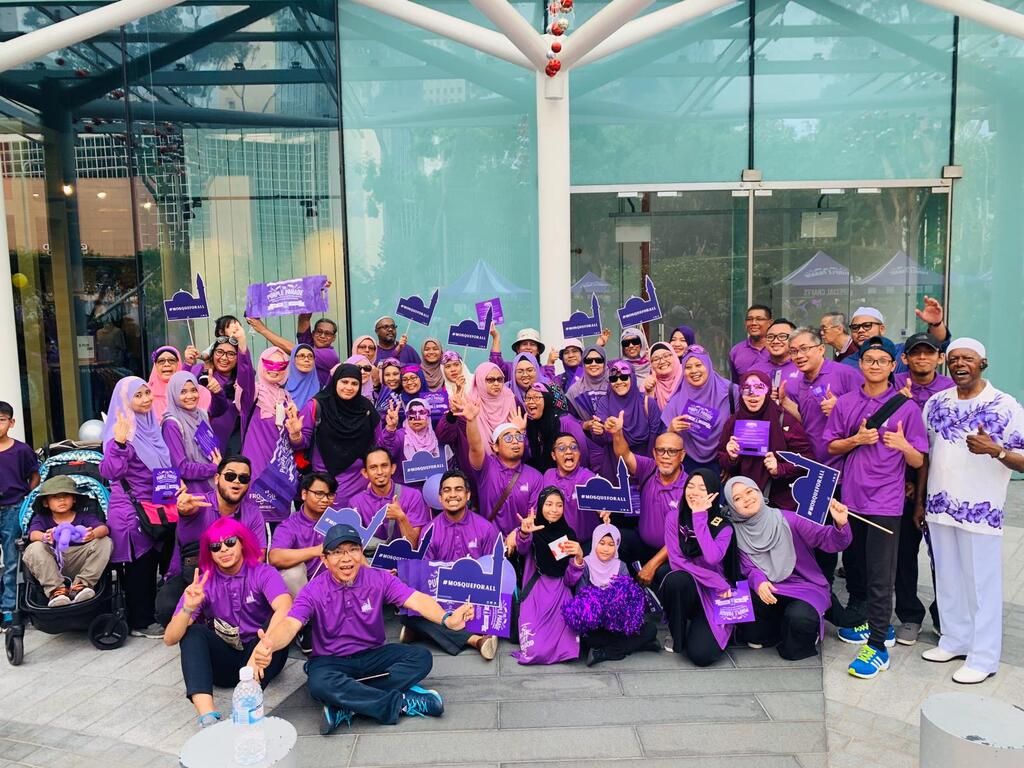
Khidir with members of the deaf Muslim community at the Purple Parade in 2019. The event celebrates the abilities of people with special needs.
Social media and societal harmony
Recognising its ability to share different perspectives, Khidir has taken to social media — primarily Instagram — to share positive messages and events. He also uses Instagram to share his reflections on life and quotes from the Quran to showcase the religion’s peaceful nature.On how social media can be used to discuss racial and religious harmony, Khidir has some advice. “It can be used to convey ideas to a bigger audience but misunderstandings are bound to happen. From my perspective, topics like racial harmony need to be informative and educational, and shouldn’t offend people,” he commented. At the same time, he believes that some topics are subjective and it might be more appropriate to discuss them face-to-face instead.
There are also a handful of content creators that Khidir looks up to for shedding light on various religions and sparking discussions on diversity, such as Singapore’s interfaith hub Harmony Centre and Being Bridges.
Harmony Centre shares content and events related to fostering interfaith relations. On the other hand, Being Bridges is a community organisation, supported by the Ministry of Culture, Community and Youth (MCCY), which strives to spark conversations around racial and religious discrimination. While the Harmony Centre is grounded in Islamic teachings, Khidir enjoys that it “fights stereotypes about religions while also sharing more about other religions, such as Judaism and Christianity.”
Engaging youths
Khidir also has some sound advice for youths hoping to play a part in promoting racial and religious harmony in their communities. “Take time to lend a helping hand at places of worship,” he suggested. “Helping out creates a good culture. It’s always important to educate oneself and these opportunities can open one’s eyes to different religions.”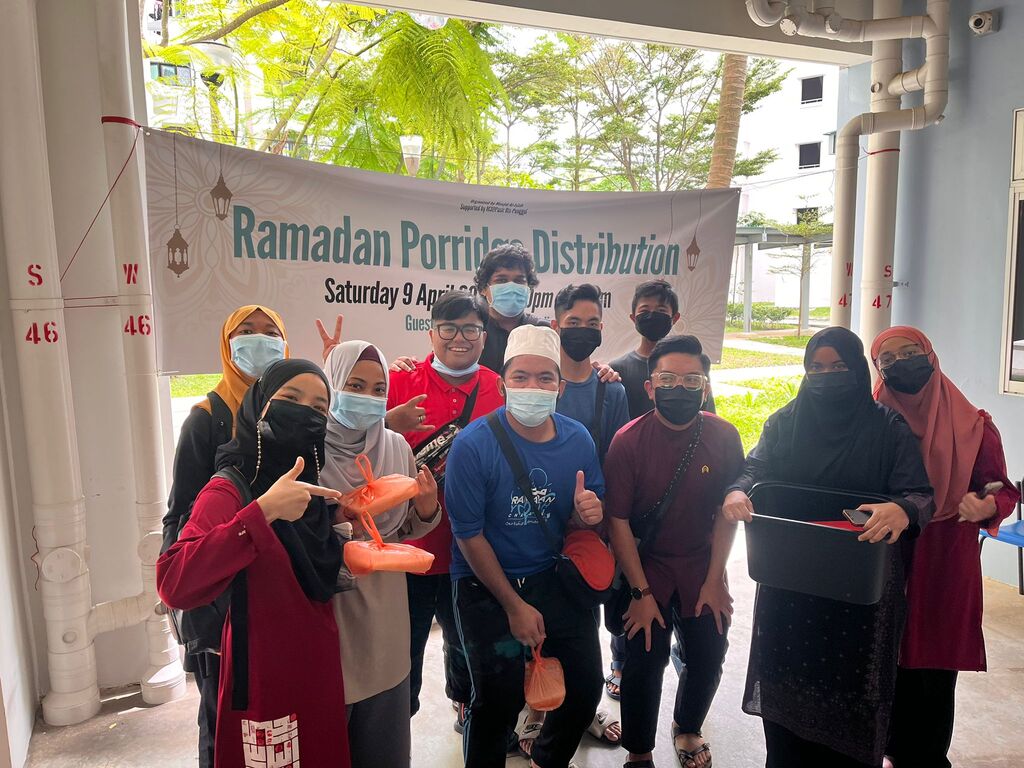
Khidir with members of Al-Islah Mosque’s youth group.
While Khidir added that each place of worship usually has its own youth group, he hopes that collaborative events will be organised so that people can learn from each other’s religions.
Khidir’s words of wisdom for those looking to serve in their communities? “Assistance knows no boundaries,” he shared. “I always tell the youths I work with to treat the people that they are helping as their own parents, as this will be able to connect (people from different) generations.”
Khidir’s words of wisdom for those looking to serve in their communities? “Assistance knows no boundaries,” he shared. “I always tell the youths I work with to treat the people that they are helping as their own parents, as this will be able to connect (people from different) generations.”

